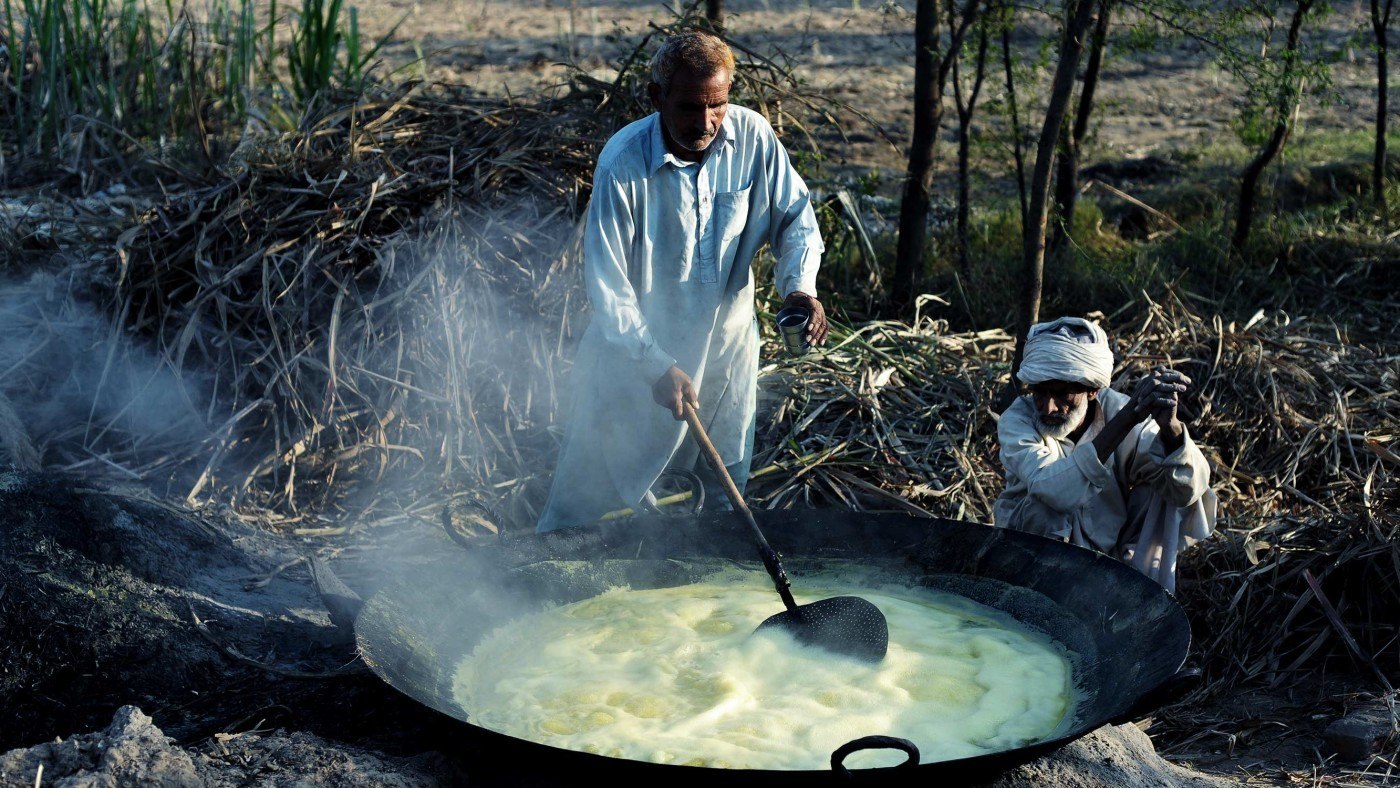The business of sugar in Pakistan has a bitter history, often replete with political influence of sugar mills owners, calls from farmers to set up a higher support price for sugar cane, and government restrictions on domestic and external trade of sugar.
Usually snubbed as the sugar mafia, the owners of sugar mills resorted recently to a widely published appeal asking the government to rescue them from imminent bankruptcy by paying them a subsidy covering the differential between domestic and international prices of sugar, the latter on the lower side in recent times.
The sugar industry is closely monitored by the state. Geographically, the industry is separated into zones, so that the crop from one zone’s farmer cannot be sold to a sugar mill from another zone. By law, the support price for sugarcane is fixed by the provincial governments. The sugar mills are also legally required to purchase all the sugarcane produced in their own zone.
Populist policy makers are known to argue in favour of higher support prices, citing the fact that nearly 80% of the cost of sugar is determined by the price of sugarcane.
Perplexingly, the support price is based on the weight of sugarcane instead of sucrose recovery. This encourages inefficiency in sugarcane cultivation. Farmers put less effort in improving their crop’s quality for higher sucrose content.
The high cost of sugar production can be a problem when surplus quantities of sugar is produced and cannot be exported, owing largely to restrictions by the government, and a local price which is higher than the international.
Farmers complain that sugar mills are unable to purchase their yield immediately. This delay causes a loss of moisture from the harvested crop, making it lighter and therefore less valuable.
Sugar mill owners pay farmers in arrears, and often, payments are not settled in full. Hence, both the farmers and mill owners are at a disadvantage because of the inefficient and ad hoc policies currently being imposed in the sector.
It has been argued that support prices for sugarcane are necessary since sugar has been categorized as an essential item. In reality, only a third of the sugar produced is consumed by households. The rest is used commercially. Therefore mill owners argue that common people are not significantly affected by a slight change in price.
But if the price of sugar is determined by sucrose content instead of the weight of the entire crop, its price could actually come down, considering that the current cane being produced is of a lower than average quality. It will also incentivize the farmers to improve crop value.
It is claimed by the government that recently announced subsidies will also cover the loss exporters may incur due to the price differential. Producers believe otherwise.
But this provision is only allowed to those mills, which have cleared their outstanding dues to farmers. The actual benefit to mill owners and fair use of taxpayer money needs to be assessed. The practices, policies and prevalent regulation of the sugar value chain is outdated and needs extensive amendment.
Potential Solutions
The National Sugar Policy provides a holistic view of the industry and proposes practical solutions to the problems associated with the market and sugar production. The main aim of this policy is to ensure supply of sugar at a competitive price to consumers while also address fairness for the producers and growers.
The policy recommends that the import of raw sugar should be in the hands of the market, however this policy remains unimplemented. Intervention by the government in the sugar value chain is a major impediment to growth of the industry. If sugarcane and refined sugar are both bought and sold in open market, growers will be incentivised to produce better crops. Mill owners too will not be as reluctant to pay a better price.
When sucrose recovery improves, sugar production costs could plausibly go down, making it more feasible for export and local consumption.
The government needs to exit the entire value chain to ensure the welfare of growers, consumers and producers of sugar alike.
This article was originally published in The Express Tribune, December 28th, 2015.


